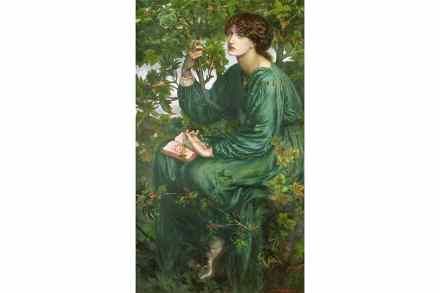Bogart and Bacall’s first film together might as well have been called Carry On Flirting
You must remember this… Harry Morgan is leaning on the bar wondering how the femme fatale and her wounded freedom fighter husband are doing. Then Slim walks in, wearing two wisps of black satin linked by a hoop around her navel. Harry tells her it’s time he checked on his patient. ‘Give her my love,’ says Slim. ‘I’d give her my own,’ says Harry, ‘if she were wearing that.’ And in real life, as the tabloids would say, he did. We are talking of To Have and Have Not (1944), in which Harry is Humphrey Bogart and Slim is Lauren Bacall. The director, Howard Hawks, said the movie was just









